Program History
The Early Years
The history of the MTSU Professional Counseling program dates back to the 1960s when the Department of Psychology was established in the School of Education. The chair of the department made a formal request to offer a Master of Arts in Psychology and the request was approved with a stipulation – that the department would be responsible for offering a counseling endorsement for teachers who desired to complete graduate coursework to be school counselors. The chairperson agreed to the stipulation and counseling courses and programs were housed in the department through 2011.
Dr. Keith Carlson started planning for a Master of Education in Elementary School
Counseling degree in 1970. The degree was initially designed to be an added endorsement
to a teacher’s certification; applicants were required to have two years of teaching
experience. Upon approval of the program by the State Board of Education courses began
to be offered in 1973. Dr. Carlson coordinated the program and eventually designed
a complementary degree program leading to Secondary School Counseling endorsement.
At the time, there was a push for secondary counseling programs to be competency based
and so the program was developed according to this model. Dr. Carlson continued as
program leader for the next 30 years and retired in 2003. 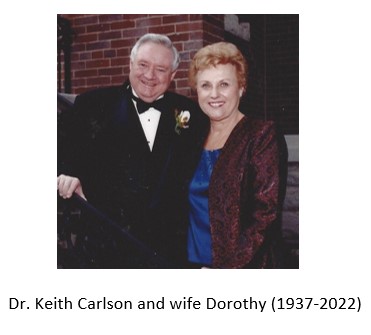
The Many Faces of a Growing Program
Faculty from the Department of Psychology and School of Education – counseling and
non-counseling affiliated – as well as adjunct faculty taught classes leading to counselor endorsement – a practice that continued for dozens of years. As time progressed faculty were hired to
teach counseling-related undergraduate courses (e.g., Psychology of Adjustment, Developmental
Psychology, Child Psychology, Theories of Counseling) as well as counseling specific graduate courses. Some of the faculty who taught
in the counseling program early, in addition to Dr. Carlson, included Drs. Beryl West, Chester Parker,
Jeanette Heritage and Cheri Campbell.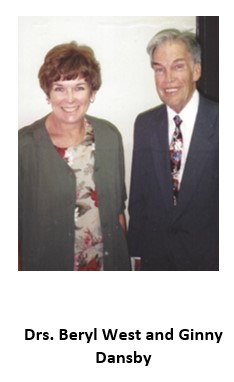
Dr. Ginny Dansby was hired to teach in the program in 1989 and others followed including Drs. Ellen Slicker, Billie Picklesimer, Carol Lewis and Christopher Quarto in the 1990s. The School Counseling program became an integrated program (i.e., elementary + secondary) leading to PreK – 12 licensure in 1996.
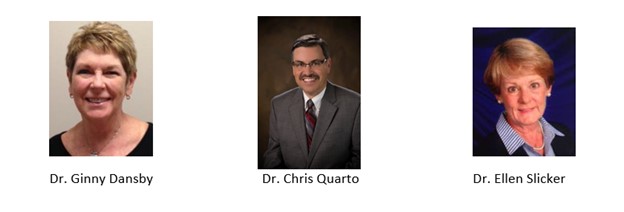
Accreditation, New Program & Training Center
School counseling remained the primary training program for many years. The pinnacle of the program was its accreditation by the Council for Accreditation of Counseling and Related Educational Programs (CACREP) in 2001.
When Dr. Carlson retired in 2003 Dr. Dansby assumed his program coordinator responsibilities. Dr. Brenda Rambo was hired in the early 2000s to replace Dr. Picklesimer. The Department of Psychology approved a second counseling program – clinical mental health counseling – in 2005. Dr. Quarto was the coordinator of the program and established the MTSU Center for Counseling & Psychological Services (the “Center”) in which counseling students offered counseling services to children and adolescents as part of their practicum experiences in Peck Hall. Because counseling faculty were still required to teach undergraduate psychology courses in addition to their graduate courses it was not possible for them to offer the clinical mental health counseling program on their own. As such, some Department of Psychology faculty graciously agreed to teach current and newly developed graduate courses for this purpose. Dr. Robin Lee was hired in 2006 to replace Dr. West and was instrumental in getting the clinical mental health counseling program off the ground. Dr. Jay Choi came on board to teach psychology and counseling courses for a couple of years and Dr. Michelle Stevens, arriving in 2008, assumed primary responsibility for teaching and supervising students at the Center as part of their Practicum in Counseling course.
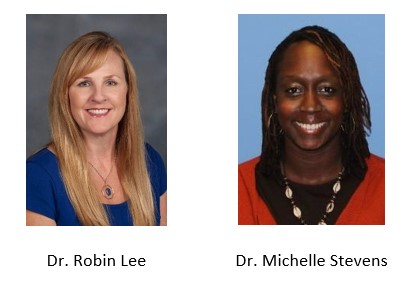
The Center relocated to its first off-campus location at this time on NW Broad Street near Bumpus Harley Davidson. This was short-lived, however, after the building in which the Center was located caught fire and caused irreparable damage. Two years later MTSU administration approved a new location for the Center next to the Skate Center on West College Street. Classes and counseling services were offered at this location for five years. Dr. Lee assumed the director role of the Center at this time, which grew in scope.
The clinical mental health counseling program was first accredited by CACREP in 2008 and the school counseling program was re-accredited that same year.
Professional Counseling Finds a New Home
In 2011, the Professional Counseling program found a new home in the Department of Educational Leadership. Faculty felt this would be a better fit than the psychology department given that the roots of counseling are in field of education and because the Department of Educational Leadership focused primarily on graduate education. Dr. Terry Whiteside (College of Education dean) and Dr. Jim Huffman (Department of Educational Leadership chair) approved this transitional request. The core faculty throughout the next several years – Drs. Dansby, Lee, Quarto, Slicker and Stevens – remained intact. The Center has evolved into a high-tech educational and training hub for students and is currently located in the Miller Education Building at 503 E. Bell Street. It has thrived under the leadership of Dr. Lee. Other significant changes occurred within the past several years. In 2014, the program underwent its third review by CACREP and both programs were re-accredited. Dr. Slicker retired in 2017 and was replaced by Dr. Tiffany Wilson.
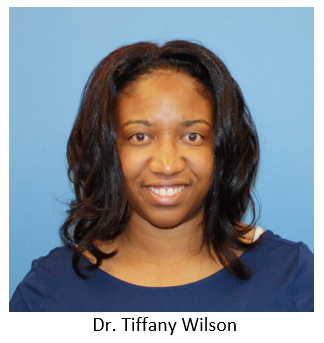
Changes and Growth
In November 2017, a chapter of Chi Sigma Iota (CSI), the international and professional academic honor society for counseling students, counselor educators, and professional counselors, was established at MTSU. Dr. Tiffany Wilson serves as the faculty advisor. Prior to CSI, the students developed the Professional Counseling Student Organization, PCSO, founded in 2009 by Kate Smylie. The PCSO active members became the initial executive board for CSI as Dr. Wilson completed the process of becoming a CSI chapter. Among other things the group sponsors educational presentations and performs service activities for the community.
In 2018, the program shifted its emphasis to a trauma-focused program in which trauma
content was embedded in all classes. As part of this transition, faculty members and
some counseling students completed 50 hours of training in Eye Movement Desensitization
and Reprocessing (EMDR), an evidence-based therapy approach to help people who are
the victims of trauma. In 2019, Drs. Lee, Stevens, and Wilson completed training
in Brainspotting, an additional evidence-based trauma training.
In addition, the program also developed a cultural-centered approach to training.
With the expertise and input from Dr. Michelle Stevens, the faculty engaged in a process
to ensure students were training to work with minoritized populations. This included
demonstrating the commitment to diversity by developing a cultural competence statement.
Dr. Wilson assumed Dr. Dansby’s school counseling coordinator responsibilities upon her retirement in 2019. This was an exciting time in the history of the program given that the school counseling program transitioned from a 49-hour to 61-hour program per CACREP’s policy that all counseling programs be at least 60 hours in length. As part of this transitional process, the programs shifted from Master of Education (M.Ed.) degrees to Specialist in Education (Ed.S.) degrees in order to reflect the amount of time and effort that students were putting into their training programs.
Moving forward….accreditation and more!
In spring 2022, under the leadership of Dr. Quarto, faculty submitted the most recent CACREP self-study for re-accreditation of its clinical mental health counseling and school counseling programs. The Program is hosting workshops on private practice development and Brainspotting.
In Fall 2023, the Program had the CACREP site visit, which was very successful. We are expecting a decision from CACREP in March 2024.


